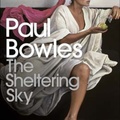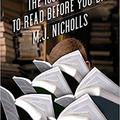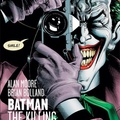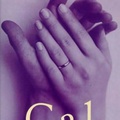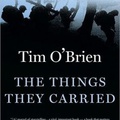Ernest Hemingway: Fiesta - The Sun Also Rises

I never used to like Hemingway’s writing. I read a couple of his books as a high-school student, but I could never learn to like his spare language, his macho protagonists reeking with testosterone, and the whole masculine, brutal world in which his novels are set. Then as a university student I had the good luck to attend a course on the American literature of the 1920s, and apart from other things, here I encountered the first Hemingway novel I could love. This was Fiesta, which amazed me when I first read it, and which still amazes now, after reading it for the third time.
It’s a mystery even for me what I love about this book, as it seems to be a typical Hemingway novel just like all the others, full of masculine activities which I don’t care about a bit. I’m not interested in bullfights, and I don’t care about trout fishing (except if it’s going on in America) or the number of bottles of wine two or three healthy men can drink in the course of a hearty Spanish meal. But still, there’s something in this novel which makes my heart sink and which makes me want to reread the book again and again.
One thing is certain, though. The strength of this novel doesn’t lie in the story, as the story is virtually non-existent. Fiesta is about a bunch of American people living in Paris or traveling in Europe who try to live a good life first in Paris, and then in Pamplona, Spain, during the fiesta. For them, living a good life means that they drink all day, wander aimlessly about the city, obsessively cling to one another, break their hearts in the most diverse ways over the only important female character of the novel, the irresistible, unfaithful, unhappy Brett Ashley, and finally drink some more.
The story itself is not a big deal then, but the way Hemingway presents the events and the feelings of aimlessness and meaninglessness permeating the world he depicts is. He writes in such a simple yet colorful language that I have no trouble at all imagining the beads of water glistening on the wine bottles as they are taken out from the ice-cold water of the stream; I can see and smell the smoke meandering in the cafés and taverns; and I can also understand what makes a bullfight so attractive to many a person, or why every man wants to possess Brett. And from all the evocative descriptions I get a feel of the sad hedonism of all the characters, and of the whole era when a wealthy American expat in Europe could do absolutely anything, but of course the fact that they could do anything didn’t necessarily entail that they were happy as well.
The two main organizing forces in Fiesta are waiting and yearning, and perhaps these characteristics make the novel so heart-wrenching. The characters of the novel are constantly on the road, and they are always waiting for something: a fishing together; the beginning of the fiesta; the dinner; the next round of drinks; the arrival of the others; a bullfight; or, most of all, Brett’s presence and love. Due to this constant waiting, they can never enjoy what they are doing, because no matter what they do, the elusive spirit of Brett seems to haunt and make fun of them.
The novel, by the way, very much reminds me of two novels by F. Scott Fitzgerald, The Great Gatsby and Tender Is the Night. Just like Fiesta, these two novels also deal with desires which didn’t come true, with a search for happiness, and with the sadness and disillusionment necessarily following the days of manic experience-seeking. The similarity is, of course, not an accident, since Hemingway and Fitzgerald must have had some common experiences as both of them belonged to the lost generation after World War I, but still, it’s very interesting that two writers of such different styles, ways of life, and language usage created works with highly similar atmospheres.
Though I’ve never liked Hemingway, I’ve always loved Fitzgerald, and perhaps I only like Fiesta this much because it is a novel which could almost have been written by him. And even though Hemingway is a Nobel laureate, while Fitzgerald is not, I still don’t consider this comparison offensive to Hemingway; and I would definitely recommend Fiesta to anyone who is not overly enthusiastic about Hemingway and doesn’t like any of his other works: read this novel, because it may well become the only novel by Hemingway you’ll love.

